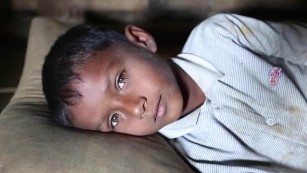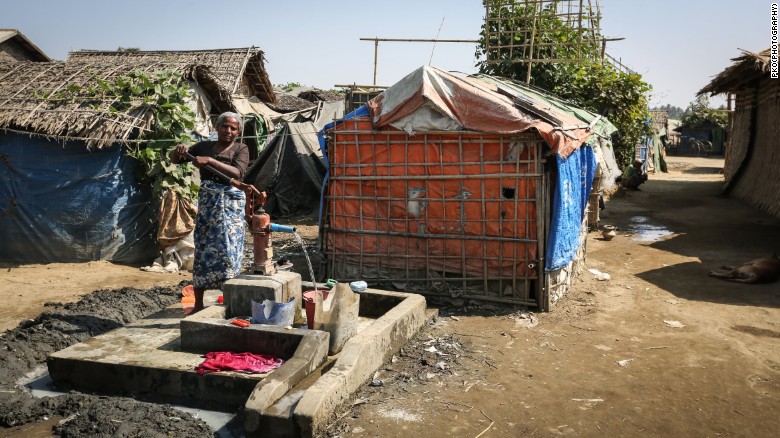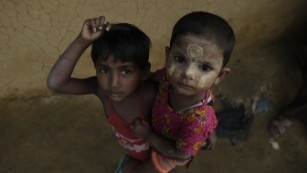Malaysia: Myanmar's Rohingya crisis a threat to regional stability
Myanmar's treatment of its Muslim Rohingya minority threatens to undermine the region's security and stability, Malaysia's Foreign Minister said Monday at a rare international meeting to tackle the crisis.
The Association of Southeast Asian Nations (ASEAN) met in Yangon, Myanmar following multiple reports from NGOs that the army has burnt down Rohingya villages and attacked men women and children. This is the first time that foreign ministers from ASEAN countries have met to discuss the issue.
Malaysian Foreign Minister Anifah Aman urged Myanmar's government to avoid the humanitarian disaster that unfolded in 2015 after thousands of ethnic Rohingya muslims fled Rakhine in boats, and remained stranded in the Andaman sea.
"I believe all us do not wish to see the repeat of this crisis which could potentially impact the security and stability of the region," Aman said.
"It is due to this reason that we believe that the situation is now of a regional concern and should be resolved together," he added.
Malaysia has long been a strong critic of Myanmar's treatment of the Rohingya, a heavily-persecuted ethnic Muslim minority of around one million people who live in Rakhine, a restive state in Western Myanmar.
Amnesty: 'Crimes against humanity'
Malaysia's heavy criticism comes after an Amnesty International report released Monday that accuses Myanmar's military of "crimes against humanity."
"The Myanmar military has targeted Rohingya civilians in a callous and systematic campaign of violence," said Rafendi Djamin, Amnesty International's Director for Southeast Asia and the Pacific in a statement.
"Men, women, children, whole families and entire villages have been attacked and abused, as a form of collective punishment," Djamin added.
Amnesty International compiled their report based on analysis of satellite imagery, photos, and videos as well as extensive interviews with Rohingyas in both Myanmar and Bangladesh.
Myanmar: Rohingya refugees flee torture and rape
The Myanmar government has forcibly segregated Rohingya from the rest of the population in Rakhine state since 1982 when the government stripped them of their citizenship.
They live in ghetto-like enclaves, from which they aren't allowed to leave. They are refused Myanmar citizenship and are not recognized as a legitimate ethnic group.
The UN condemned the Myanmar government's failure to handle the Rohingya crisis as "short-sighted" and "even callous" in a statement released Friday.
"The repeated dismissal of the claims of serious human rights violations as fabrications, coupled with the failure to allow our independent monitors access to the worst affected areas in northern Rakhine, is highly insulting to the victims and an abdication of the Government's obligations under international human rights law," said UN High Commissioner for Human Rights Zeid Ra'ad Al Hussein.
Myanmar: 'We are the victims of fake news'
In a written statement to CNN, Myanmar government spokeswoman Aye Aye Soe accused Amnesty International of making Myanmar the "victim of fake news" and a "disinformation campaign."
"It is most sad and unfortunate that organization like the Amnesty International has also based their report on unsubstantiated allegations, made up photos and made up captions that were floating in the mass media and had come to their own conclusions," Aye Aye Soe, told CNN in a written statement.

Rohingyas' hope rests with Myanmar's new government
"Stoking up international uproars, inciting extremism, hatred and armed attacks would definitely not solve the problems in Rakhine," she added.
Aye Aye Soe asserted that the eight-month old government in Myanmar was taking initiatives to tackle the Rakhine issue, including the citizenship verification process for Rohingya.
She accused Amnesty International of ignoring these developments, and said that time was needed for change to happen.
"Political space and time must be given to let its initiatives run their courses instead of ganging up to stoke the fire to add more complexities to the issue," said Aye Aye Soe.
In a statement issued Friday, Amnesty International said that the Myanmar government had completely ignored the specific allegations detailed in their new report.
"Instead of accusing Amnesty International of inciting extremism, hatred and armed attacks, the government should respond to these specific allegations and ensure that an independent, thorough and effective investigation is launched immediately," said the statement.
News Courtesy: www.cnn.com












